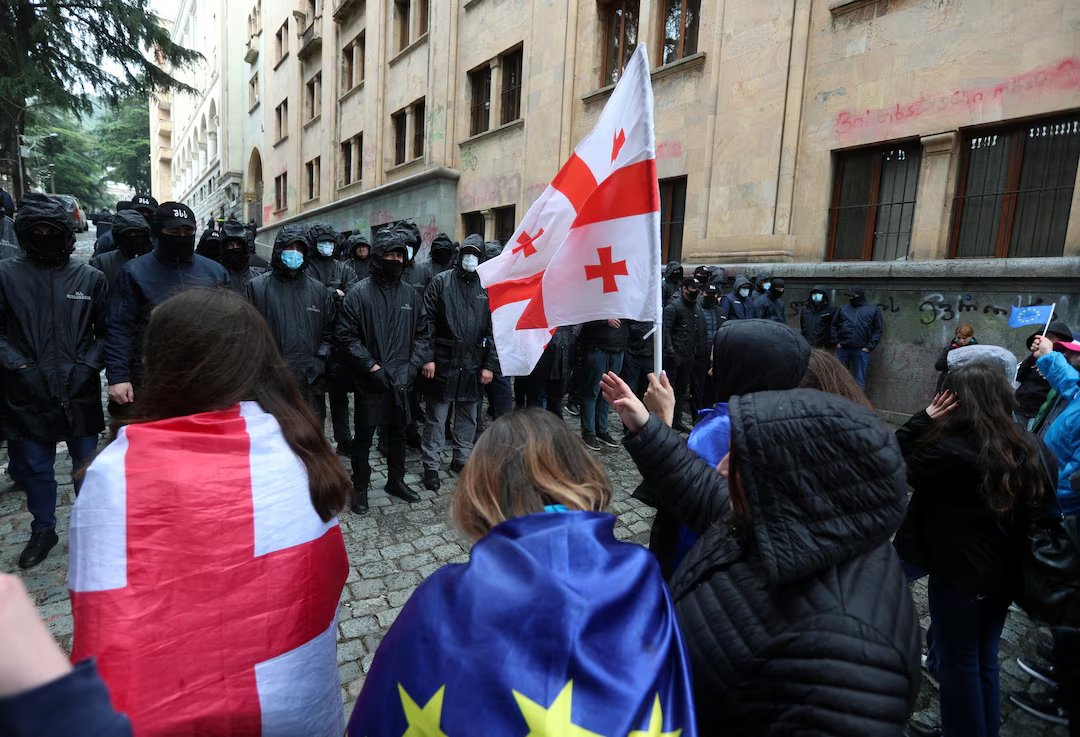Georgians' protests behind bars
For more than two months, Tbilisi has been protesting against the elections manipulated by the Georgian Dream, and the repression is getting tougher. The testimonies of those who ended up behind bars collected by Ekho Kavkaza: ‘Even among policemen, many are not happy with what is happening in our country’.
Tbilisi (AsiaNews) - For the past two months the squares of Tbilisi, and of many other Georgian cities, have been animated by protests by ordinary citizens, especially young people, who do not accept the country's anti-European and pro-Russian drift, following elections totally manipulated by the Georgian Dream power caste, the party created by the Putin oligarch Bidzina Ivanišvili.
The rallies moved from the central Rustaveli prospekt, in front of the parliament, to the various corners of the capital, and the repression by the forces of law and order became increasingly harsh, putting a now hard to specify number of people in prison.
A report by Ekho Kavkaza tried to go ‘behind the scenes’, i.e. behind the bars of this protest movement, to give a voice to those who can no longer go out onto the streets.
41-year-old Roman Akopov, an IT specialist, was arrested with others on 18 January in the Temka district of Tbilisi, while they were demonstrating in front of the police building. A professor who was standing next to him, named Guram, had wrapped his head with a scarf, in protest against the rule prohibiting covering one's face, which is why the policemen arrested him and all those standing next to him.
Roman recounts that ‘they put us on a micro-bus, but without violence as in other cases, in fact they were very nice to us’, highlighting a paradox according to which ‘the representatives of the authorities show understanding, but the system is one of terror’.
An attempt is being made to instil ‘psychological trauma’ in the population in order to make those who protest feel guilty, as the real ‘enemies of the homeland’.
In solitary confinement, the conditions are typical of the darkest Soviet times, with the light always on and the impossibility of sleeping, ‘no paper and pencil to write on, no books to read, you risk going out of your mind and I started to hallucinate’. Roman even had his glasses confiscated because of the metal frames.
Roman only managed to converse with one of the guards, who had asked him if he had been arrested during the demonstrations, and upon his confirmation he saw how the words choked in his throat: ‘he wanted to say something consoling, but he couldn't... I felt more sorry for him than for me, I was a prisoner physically, he morally’.
In the end they brought him before the judges in a gloomy basement ‘Lubjanka style of the KGB’, sentencing him to pay a fine of 2,200 lari (about 500 euro), freeing him after two weeks of ‘psychological torture’.
However, he came out ‘with even more hope, because I saw that even among policemen many are not happy with what is happening in Georgia’.
Roman's account is corroborated by the testimonies of many other arrested activists, such as 34-year-old Zviad Robakidze, who had organised a protest around the Babilo restaurant in Tbilisi where city judges had gathered to celebrate their achievements.
The police cleared the entrance of the restaurant and arrested some of the protesters, who were later charged with vandalism and resisting arrest. Zviad reports that ‘the policemen who arrested us understood that we are not violent, and we do not break any laws, you could see that they were actually on our side’. When the detainees were put behind bars, the guards assured them that ‘you will be fine here, these cells are much better than other city prisons’.
What makes the protesters under arrest suffer the most is the ‘information vacuum’, and if they can communicate with each other they spend their time discussing the fate of the country, ‘at most we play a few verbal games to pass the time,’ Zviad says. What comforted him most was knowing that outside the prison there was a close friend of his, David Simonja, who stood outside the gates with a sign: ‘My friend is in prison, and I am in front of the prison’.
More than political protests, what is exalted in the current social conflict in Georgia is the spirit of fraternity, not only between opponents to the regime, but even between oppressed and oppressors.







.png)










